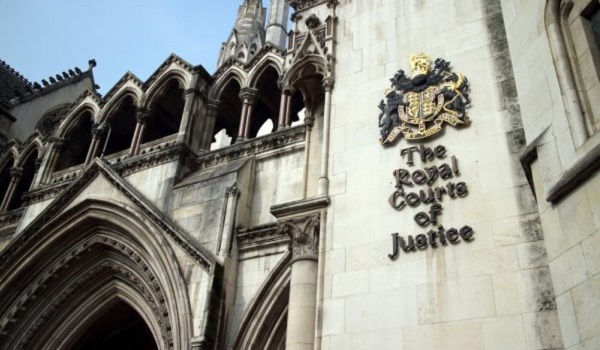Suspects under investigation have reasonable expectation of privacy, court rules
A person being investigated by the police has “a reasonable and objectively founded expectation of privacy” about the fact of the investigation before they are charged with an offence, senior judges have ruled.
In a landmark judgment delivered today, May 15, the Court of Appeal held that “those who have simply come under suspicion by an organ of the state have, in general, a reasonable and objectively founded expectation of privacy in relation to that fact and an expressed basis for that suspicion”.
Giving the court’s ruling, Lord Justice Simon said: “The suspicion may ultimately be shown to be well-founded or ill-founded, but until that point the law should recognise the human characteristic to assume the worst – that there is no smoke without fire – and to overlook the fundamental legal principle that those who are accused of an offence are deemed to be innocent until they are proven guilty.”
The judgment confirms the decision of the High Court in Sir Cliff Richard’s privacy case against the BBC, which the Society of Editors previously warned could have “worrying consequences for press freedom”.
In July 2018, Mr Justice Mann ruled that a suspect in a police investigation has a “reasonable expectation of privacy”, but added that there is no “invariable right to privacy”.
In Friday’s judgment, Lord Justice Simon said: “Richard v BBC was a case in which the investigation related to allegations of historical sexual abuse.
“But Mr Justice Mann’s observations were rightly directed more widely: not as an invariable or unqualified right to privacy during an investigation, but as the legitimate starting point. In my view this was the correct approach and an accurate statement of the law.”
The judge added: “To be suspected of a crime is damaging whatever the nature of the crime: it is sensitive personal information and there can be little justification for a hierarchy of offences giving rise to suspicion.”
Lord Justice Simon did, however, say that “there may be some cases where the reasonable expectation of privacy may be significantly reduced, perhaps even to extinction, due to the public nature of the activity under consideration”, such as rioting or electoral fraud.
He concluded that “there is plainly a difference between a report about the alleged criminal conduct of an individual and a report about a police investigation into that individual and preliminary conclusions drawn from those investigations”.
The Court of Appeal’s judgment follows a claim for breach of privacy by a man known only as ZXC, who was the chief executive of the regional division of a company, referred to as X Ltd.
The company came under investigation for possible offences, including corruption, bribery and fraud, by an unnamed “UK legal enforcement body” (UKLEB) over concerns about “the integrity of various transactions involving X Ltd” in a foreign country.
Lord Justice Simon said that “the current position is that none of the personnel employed by X Ltd has been charged with any offence as a result of the UKLEB investigation”.
The UKLEB sent a letter of request, marked “confidential”, for mutual legal assistance to the foreign country in 2016, requesting banking and business records in relation to the company and a number of named individuals, including ZXC.
The letter specifically stated that the UKLEB was investigating whether ZXC was “part of a conspiracy to defraud X Ltd”.
A journalist working for Bloomberg obtained a copy of the letter and published an article based on its contents in late 2016, prompting ZXC to sue Bloomberg claiming that he had a reasonable expectation of privacy about “the details of the matters that the UKLEB was investigating” in relation to him.
In April 2019, the High Court ruled that Bloomberg had breached ZXC’s right to privacy, awarding him £25,000 in damages and granting an injunction stopping Bloomberg from publishing information which further identified him as the subject of a criminal investigation.
Bloomberg challenged the judge’s ruling, but the Court of Appeal dismissed the challenge.
Lord Justice Simon said that “none of the facts relating to the scope of the UKLEB’s investigation into the claimant, or the particular matters in respect of which it suspected the claimant had been involved in criminal activity, had been made publicly available”.
He stated that, before the Bloomberg article was published, “they had remained confidential to the UKLEB’s investigation”.
The judge said that “although the fact of the investigation into X Ltd was known, the particular targets of the investigation and the identities of those suspected was not”, and that “the highly confidential nature of (the letter’s) contents should have been recognised by Bloomberg”.
He added: “The reasons for the strict confidentiality were clearly expressed: to avoid prejudice to the UKLEB’s investigation that might be caused if the subjects of the investigation became aware of the focus of the investigation and took steps to frustrate it by interference with documents and/or witnesses.”







